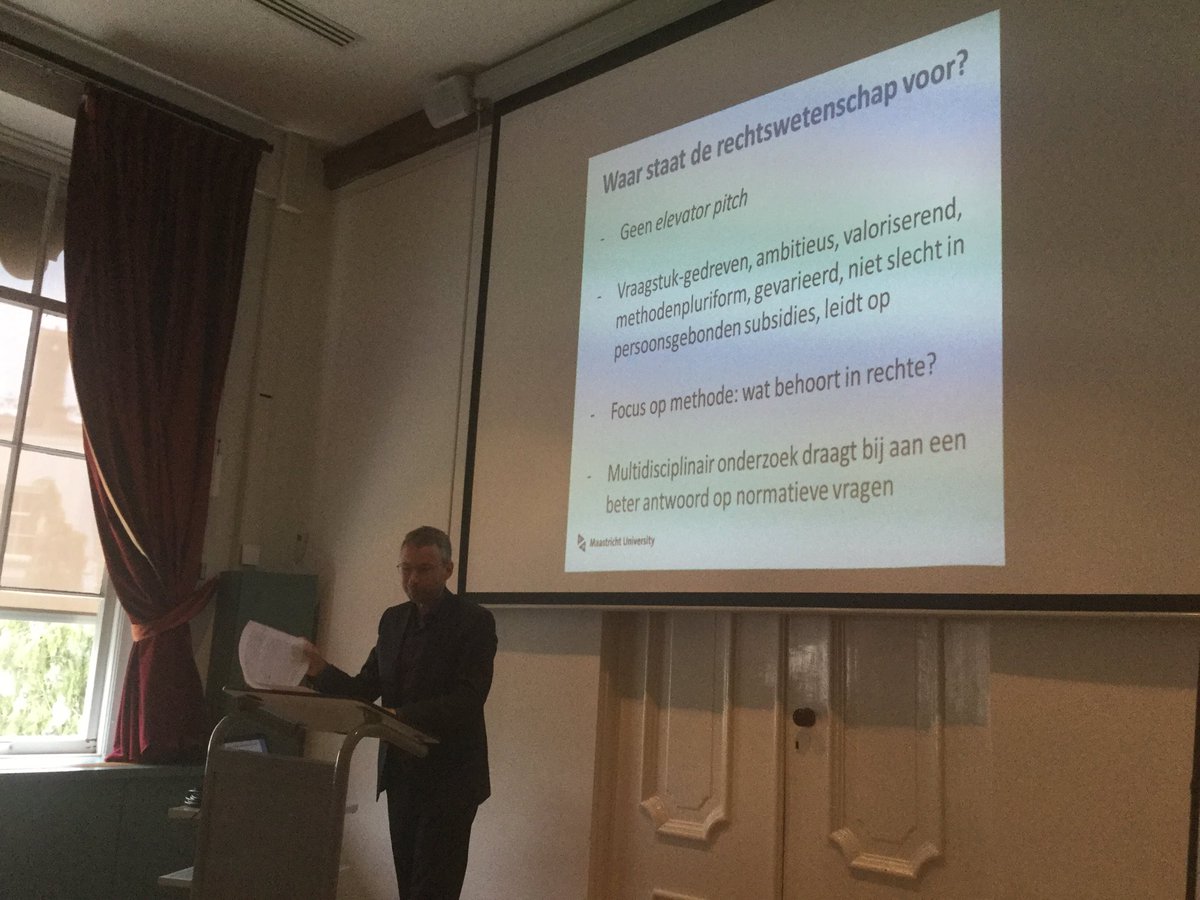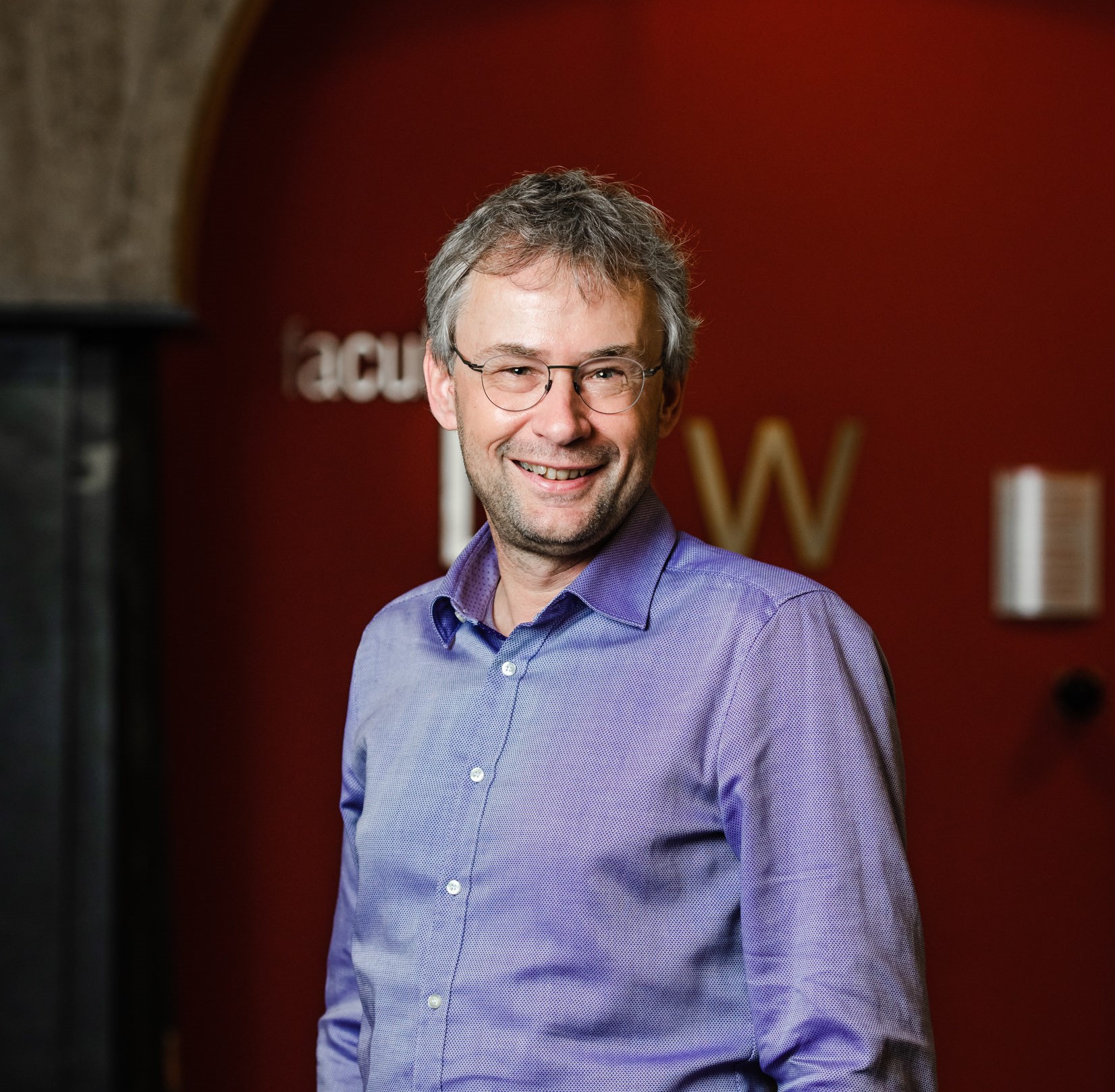Dean’s blog episode 7: how visible is legal academia?

Many things go well in Dutch legal academia. However, there is a need for legal academics to be more visible to the outside world. They should show why law must have a central place in the big research themes of today.
Last week I visited a ‘work conference’ on legal research in the Netherlands. This meeting was organised by the Council of Deans, the platform of deans of the ten Dutch law faculties. We spent an afternoon talking about the state of legal research in the presence of vice-deans for research, the president of the VSNU and the chair of the new NWO domain Social Sciences and Humanities (that Law belongs to). There was enough to speak about. Not too long ago, the final report of Willem van Genugten on the national research assessment exercise was published. In addition, there are lingering concerns about how legal science can show how it matters in dealing with the great themes of today’s society. This is important in the ongoing battle for scarce resources. It seems that legal academics too often lag behind in the agenda setting by the Ministry of Education, NWO, the European Commission and other funding organisations.

I warned in my talk for the ‘Calimero syndrome’: there is no reason for legal academics to be too defensive about their discipline. The Van Genugten report recently established that legal science is problem-driven, ambitious, strong in valorisation, multiform in method, varied in publication forms, performing not too bad in obtaining external money (31 veni’s, 11 vidi’s and 4 vici’s, but only one Spinoza prize), and good in training new lawyers. The criticism on other disciplines – such as a lack of valorisation or cooperation with practice or other disciplines – is much less relevant for legal science. We have always been extremely open towards society, often closely related to practice, and open towards other disciplines. Legal scholars do like to work with psychologists, economists, statisticians, etc. – but psychologists, economists and statisticians unfortunately not always with us.
All of this is no reason for being presumptuous. To the contrary. Legal scholars must better show to the outside world why it is that law is important and merits a central place in the big research themes of today. Legal academia is insufficiently visible in many of the themes that are high on the Nationale Wetenschapsagenda, such as resilient society, sustainability, artificial intelligence and the circular economy. Legal scholars are in an ideal position to place the ‘hard facts’ of other fields on these (and other) themes in a normative framework. This turns legal science into an essential part of any societal debate: jurists are the indispensable intermediaries between hard facts and how society must deal with them.
I therefore made a plea at the meeting that legal academics better show themselves in these societal debates. Of course in the very first place through top research, but also through op-eds, blogs (the Dutch economists do this very well with their website me judice), possibly with a sector plan, and certainly with a powerful lobby with funding organisations. Legal science itself cannot speak. This is why its spokespeople – all of us – must show how important our discipline is.
| Read more of our blogs on Law Blogs Maastricht |
Other blogs:
Also read
-
On 23 February 2022, the European Commission released the much anticipated proposal for the Directive on Corporate Sustainability Due Diligence. The aim of this Directive is to reduce human rights violations and environmental harms across the global value chain by making large companies carry out...
-
Achieving a sustainable way of life requires massive societal changes and (private international) law should enable, rather than hamper, the realization of such essential goals.
-
Recent days have seen the meteoric rise and fall of the European Super League (ESL). This new league would have consisted of 15 founding clubs and 5 other clubs; the former consisting of ‘big clubs’ which could not be relegated and the latter in clubs who performed well over the past years on a...



